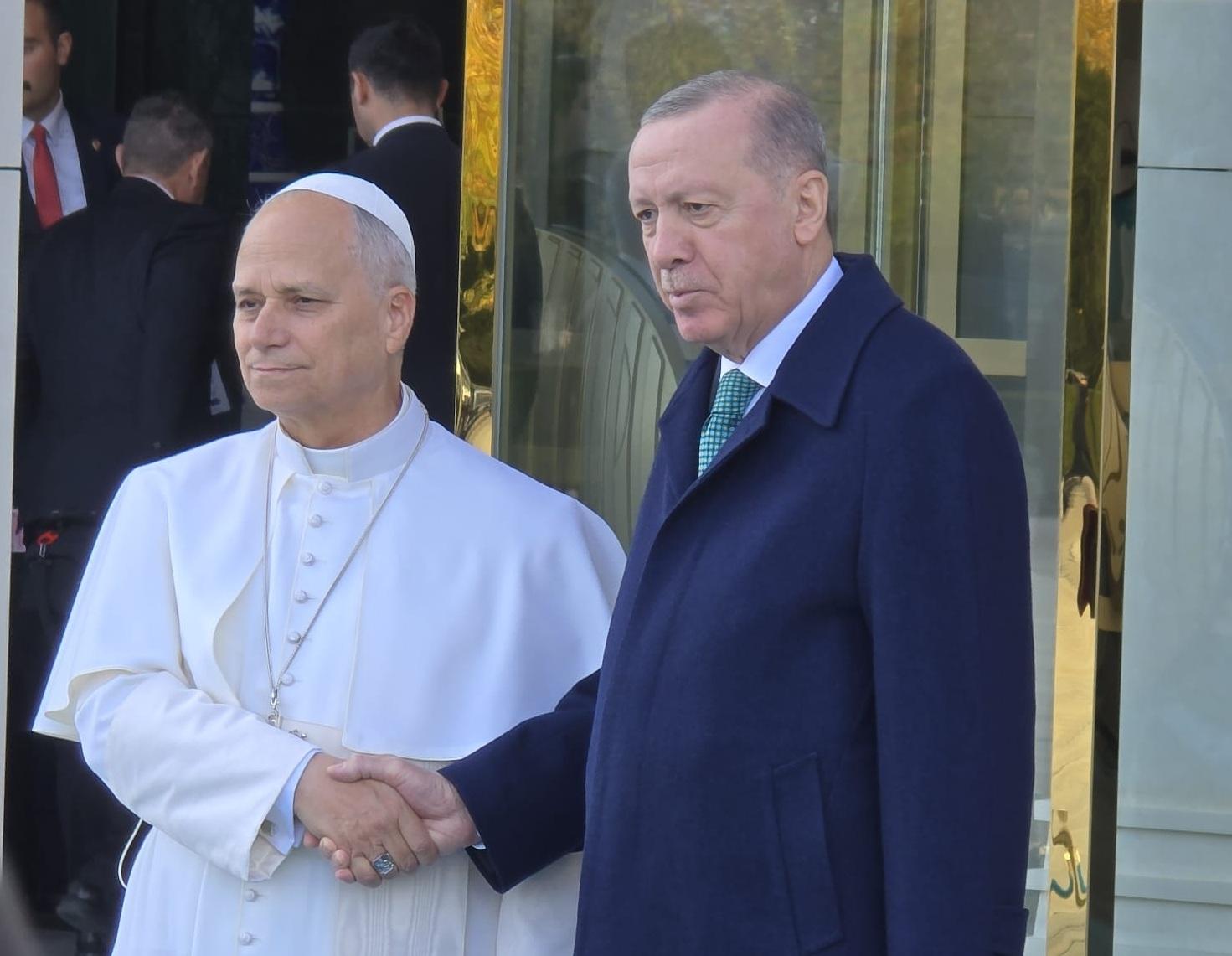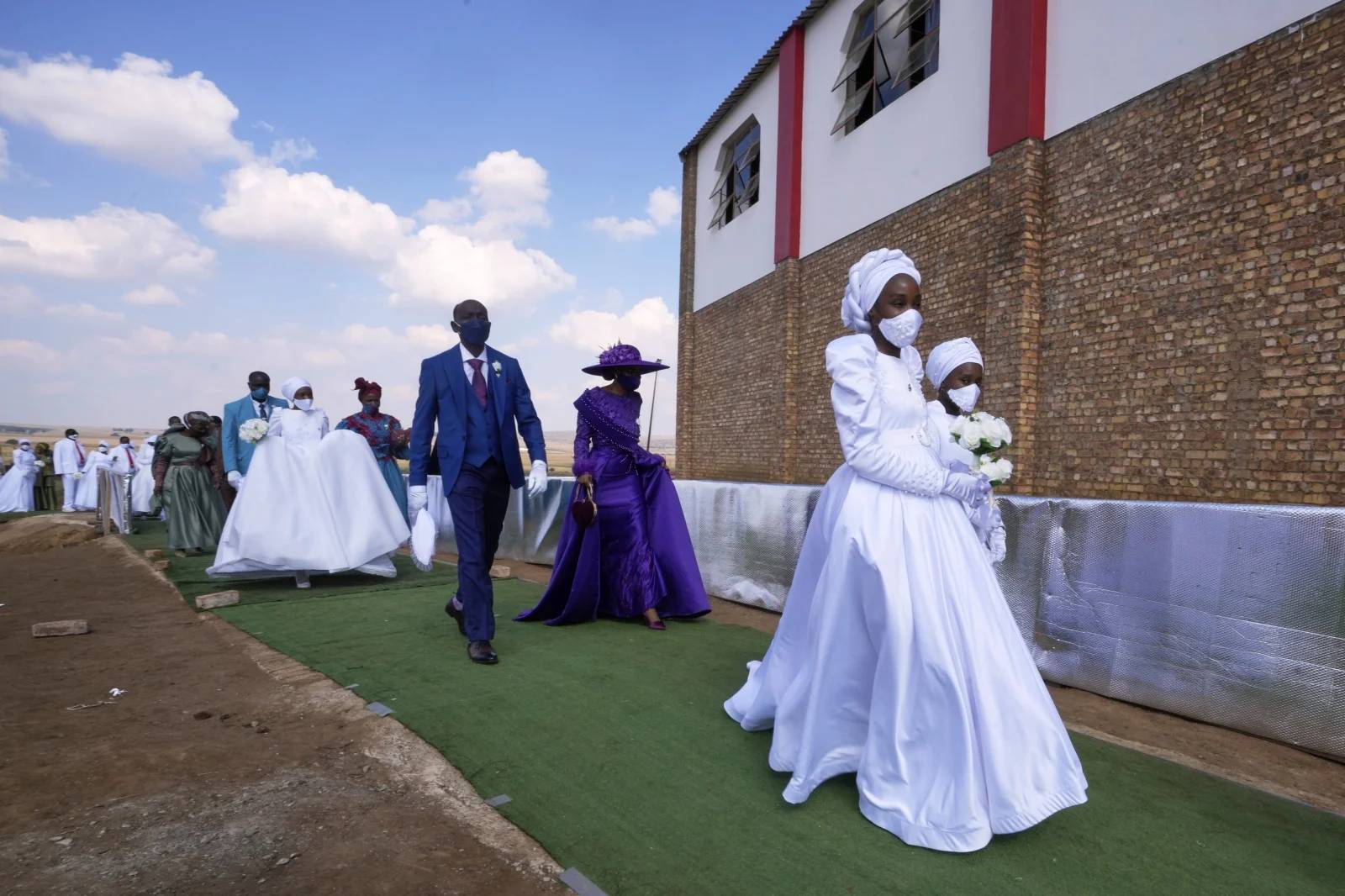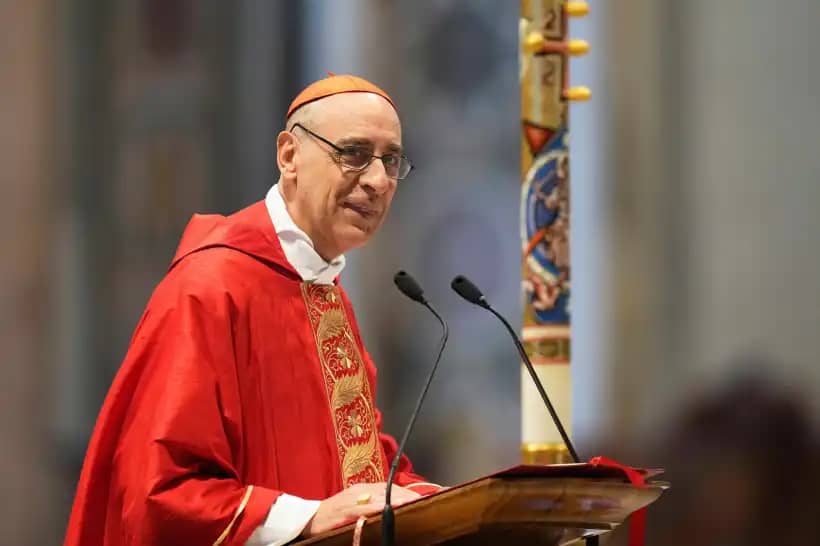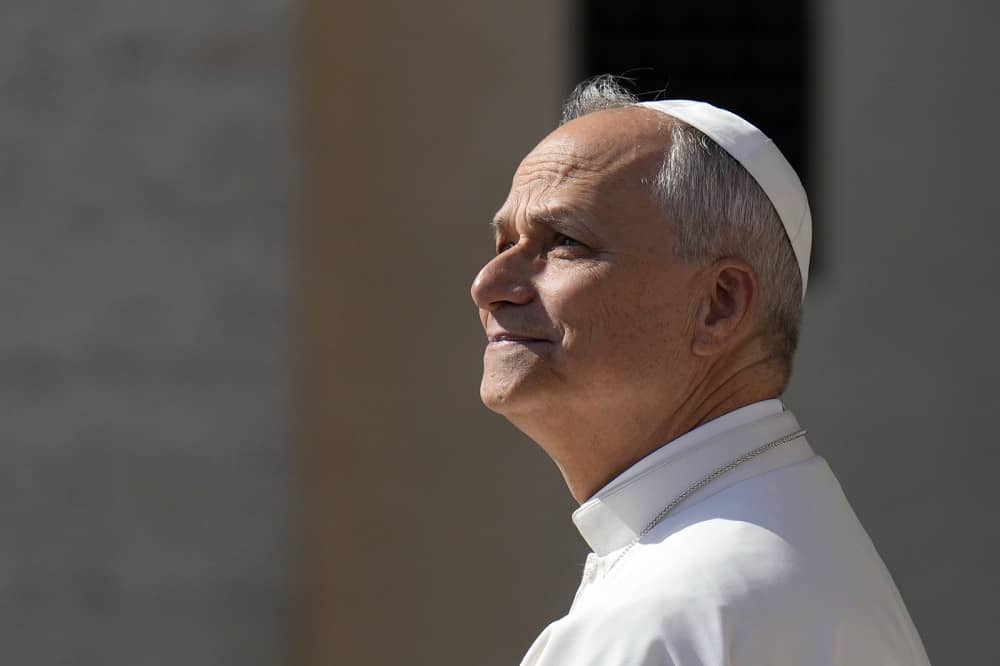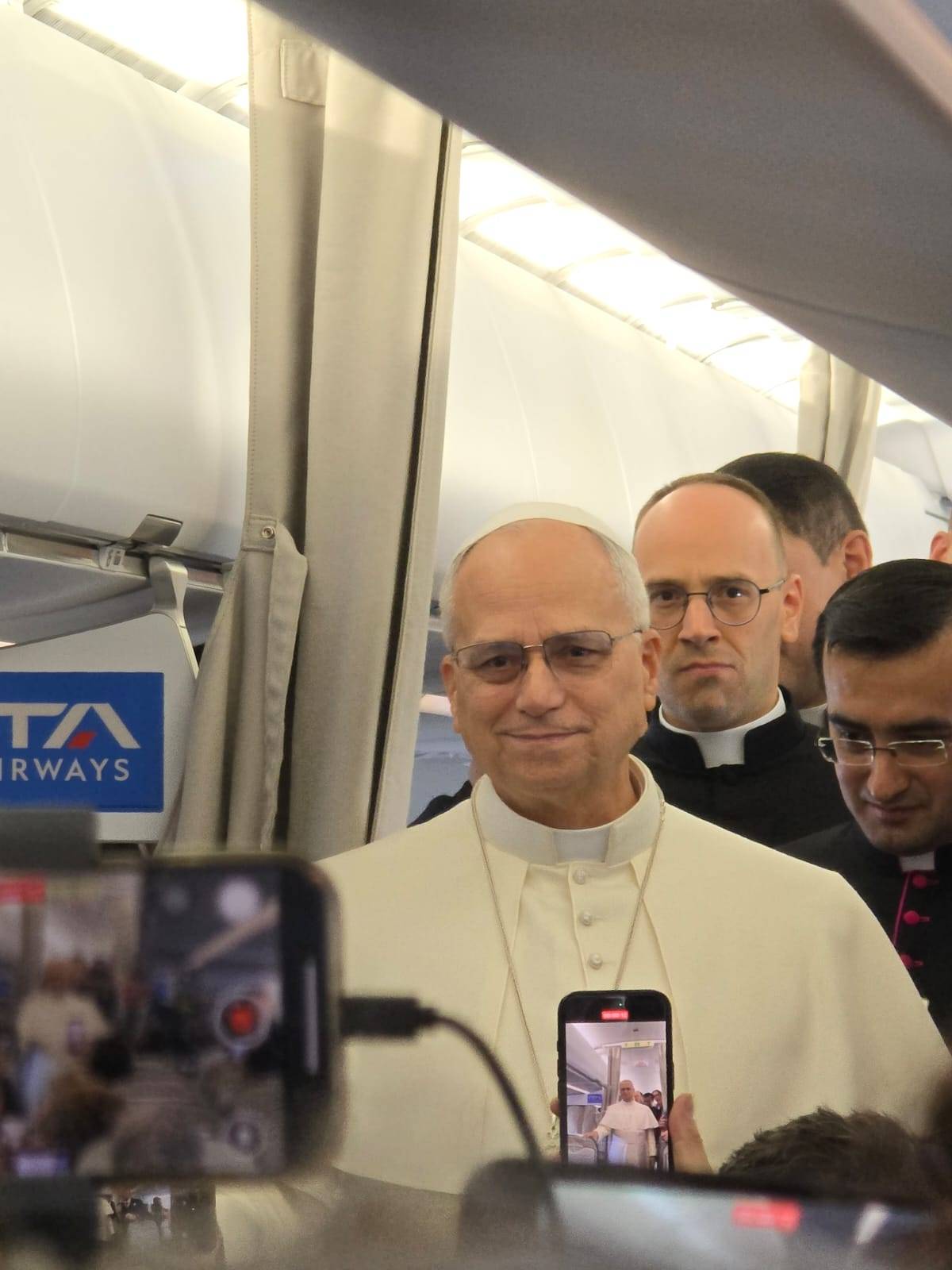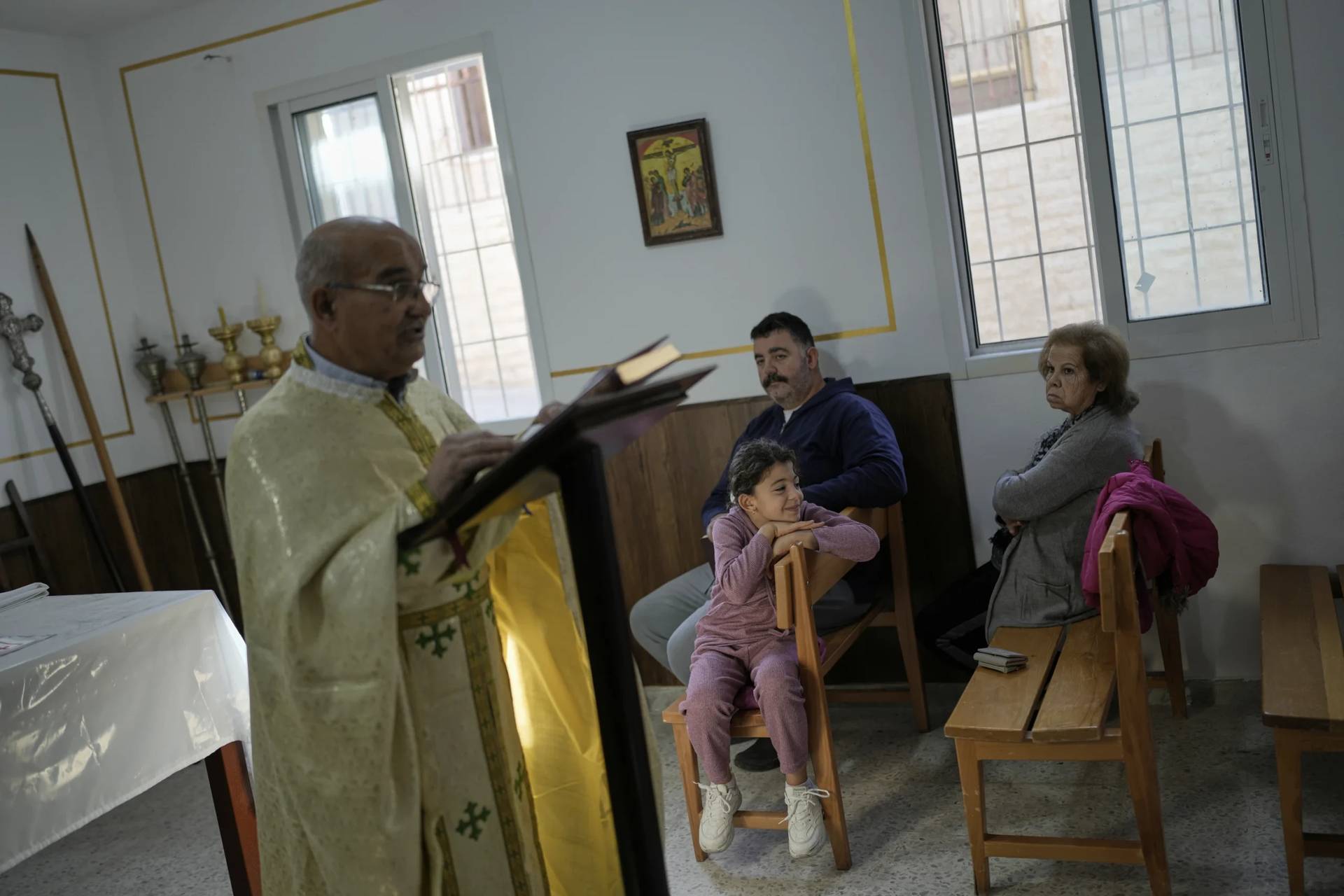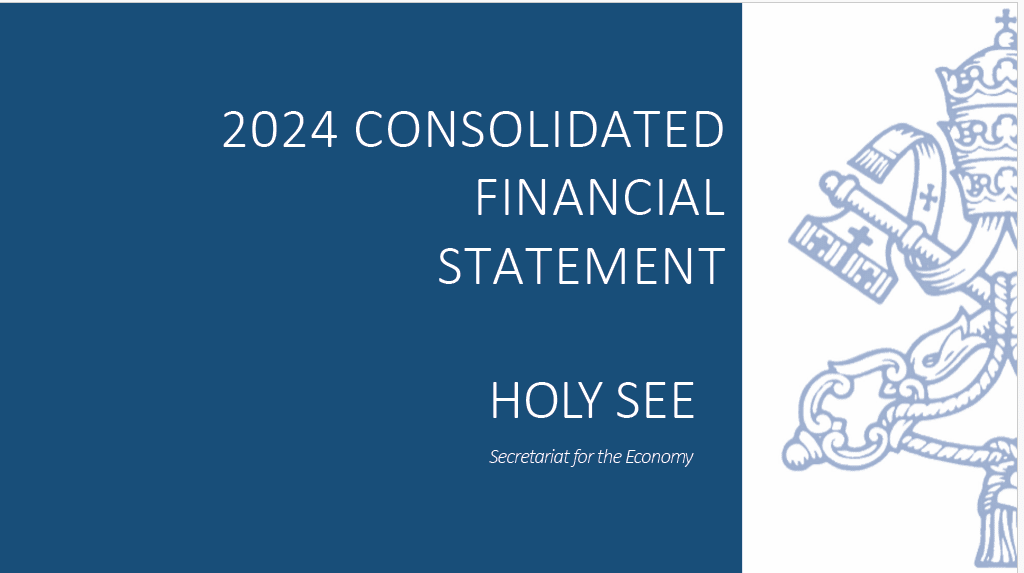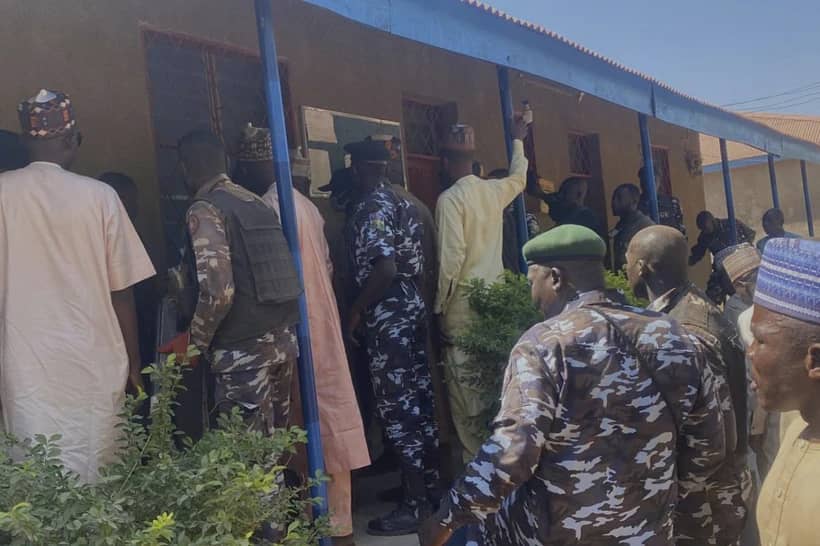ROME – Pope Leo XIV landed in Ankara Thursday, where he lauded the Turkey’s rich cultural and religious diversity, saying it has a key role in building bridges of harmony and coexistence, and calling for equal rights for all citizens, regardless of gender, status or background.
Speaking from the Presidential Palace in Ankara Nov. 27, the pope told Turkish authorities that “you have an important place in both the present and future of the Mediterranean, and of the whole world, above all by valuing your internal diversity.”
He invoked the image of the country’s iconic bridge spanning the Dardanelles Strait, which appears in the logo for the visit to Turkey, saying this choice “eloquently expresses your country’s special role.”
“Even before linking Asia with Europe, and East with West, this bridge connects Türkiye to itself. It combines different parts of the country, making it from within, as it were, a ‘crossroads of sensibilities,’” he said, adding that, “In such a case, uniformity would be an impoverishment.”
Society only functions effectively “if it has a plurality, for what makes it a civil society are the bridges that link its people together,” he said, but lamented that in contemporary society, “human communities are increasingly polarized and torn apart by extreme positions that fragment them.”
Pope Leo spoke on the first day of his Nov. 27-Dec. 2 trip to Turkey and Lebanon, originally planned by Pope Francis but which was rescheduled following his death in April, and Leo XIV’s election in May.
After meeting privately with Turkish President Recep Erdoğan and the head of Turkey’s Diyanet, its Directorate of Religious Affairs, Ali Erbaş, he met with national civil authorities and members of the diplomatic corps.
In his speech to national authorities, he praised the “cultural, artistic and spiritual richness” of Turkey, saying the various traditions and ideas that intersect in Turkish culture are a source of development and wisdom, and ought to be a source of unity.
“On the one hand, it is true that human history has centuries of conflict behind it, and that the world around us is still destabilized by ambitions and choices that trample on justice and peace. At the same time, when faced with challenges, being a people with such a great past is both a gift and a responsibility,” he said.
He pointed to Pope John XXIII, who prior to his election served as apostolic delegate to Turkey and Greece from 1935-1945, saying his predecessor during his time in Turkey “worked tirelessly to ensure that Catholics did not exclude themselves from the ongoing development of your new Republic.”
In Turkey, a Muslim majority nation, Christians are a small minority, and face daily discrimination and have often complained that they are treated like second-class citizens, without equal rights or representation.
Quoting John XXIII, Leo noted that in such an ethnic and religiously diverse nation there is a temptation to categorize oneself, even within the Christian community, by one’s differences.
“It seems logical that everyone should mind their own business, their own family or national traditions, keeping within the limited circle of their own community… My dear brothers and sisters, my dear children, I must tell you that in the light of the Gospel and of Catholic principles, this is a false logic,” he said.
While progress in this regard has been made, Leo said this message is still relevant and contributes to what Pope Francis dubbed the “culture of encounter.”
Leo repeated Francis’s frequent criticism of the “globalization of indifference,” saying Turkey, at the heart of the Mediterranean, and urged citizens to be attentive “to the cry of the poor and the of the earth.”
To this end, he challenged the mentality that “might is right” and said principles such as compassion and solidarity, ought to be the basic criteria of societal development.
“For this reason, in a society like the one here in Türkiye, where religion plays a visible role, it is essential to honor the dignity and freedom of all God’s children, both men and women, fellow nationals and foreigners, poor and rich,” he said.
Contemporary society, the pope said, faces the challenge of reshaping both local policy and international relationships. He specifically called out technological advancements “that could otherwise exacerbate injustice instead of helping to overcome it.”
As someone who chose his papal name due to the implications of the “revolution” of artificial intelligence and its implications for the workforce, Leo pointed specifically to AI, saying it “simply reproduces our own preferences and accelerates processes that, on closer inspection, are not the work of machines, but of humanity itself.”
“Let us work together, therefore, to change the trajectory of development and repair the damage already done to the unity of our human family,” he said.
Pope Leo praised the role of the family in society, saying it has an essential role to play in contributing to the common good.
He also warned that “every family can also close in on itself, cultivate hostility, or prevent some of its members from expressing themselves to the point of hindering the development of their talents,” and insisted that no one achieves opportunities or happiness “from an individualistic culture, nor by showing contempt for marriage or shunning openness to life.”
The pope also criticized consumerist economies as deceptive, saying, “loneliness has become a business,” the remedy for which is a culture “that appreciates affection and personal connection.”
“Only through love does our inner life become profound and our identity strong. Those who scorn fundamental human ties, and fail to learn how to bear even their limitations and fragility, more easily become intolerant and incapable of interacting with our complex world,” he said.
Leo then issued an appeal on behalf of women, urging their participation in studies and in the professional, political and cultural sectors.
“We must greatly value, then, the important initiatives in this regard, which support the family and the contribution that women make toward the full flowering of social life,” he said.
Pope Leo closed his speech acknowledging the good longstanding relations between Turkey and the Holy See, calling Turkey “a bridge between East and West, between Asia and Europe, and a crossroads of cultures and religions.”
Pointing to the anniversary of the Council of Nicaea, he said the fact that the first eight ecumenical councils were held in Turkey illustrates the role that the country has and continues to play in fostering encounter and dialogue.
“Today, more than ever, we need people who will promote dialogue and practice it with firm will and patient resolve,” he said.
Leo lamented that the resolve following the First and Second World Wars to build international organizations aimed at securing peace, the world is once again at war.
Though he did not specifically mention the tenuous ceasefire in war-torn Gaza, which Turkey played a key role securing, or the conflict between Israel and Hezbollah forces in Lebanon, where he will travel next, Pope Leo alluded to the conflicts and condemned the private and military interests that keep them wars raging.
“We are now experiencing a phase marked by a heightened level of conflict on the global level, fueled by prevailing strategies of economic and military power,” he said, saying the world must not give into what Pope Francis termed the “third world war fought piecemeal.”
“The future of humanity is at stake,” he said, and urged nations to “walk together, then, in truth and friendship, humbly trusting in the help of God.”
Follow Elise Ann Allen on X: @eliseannallen
